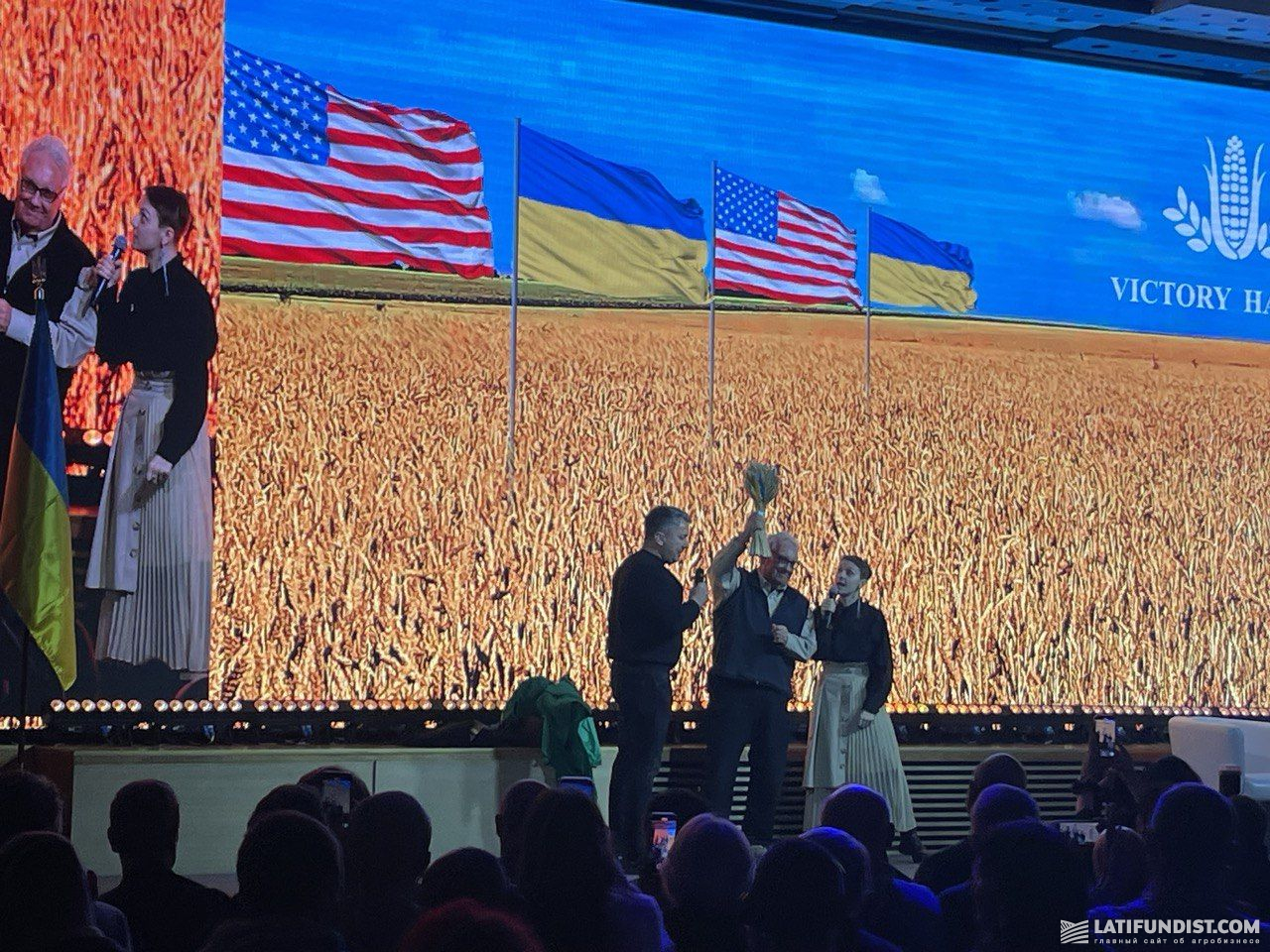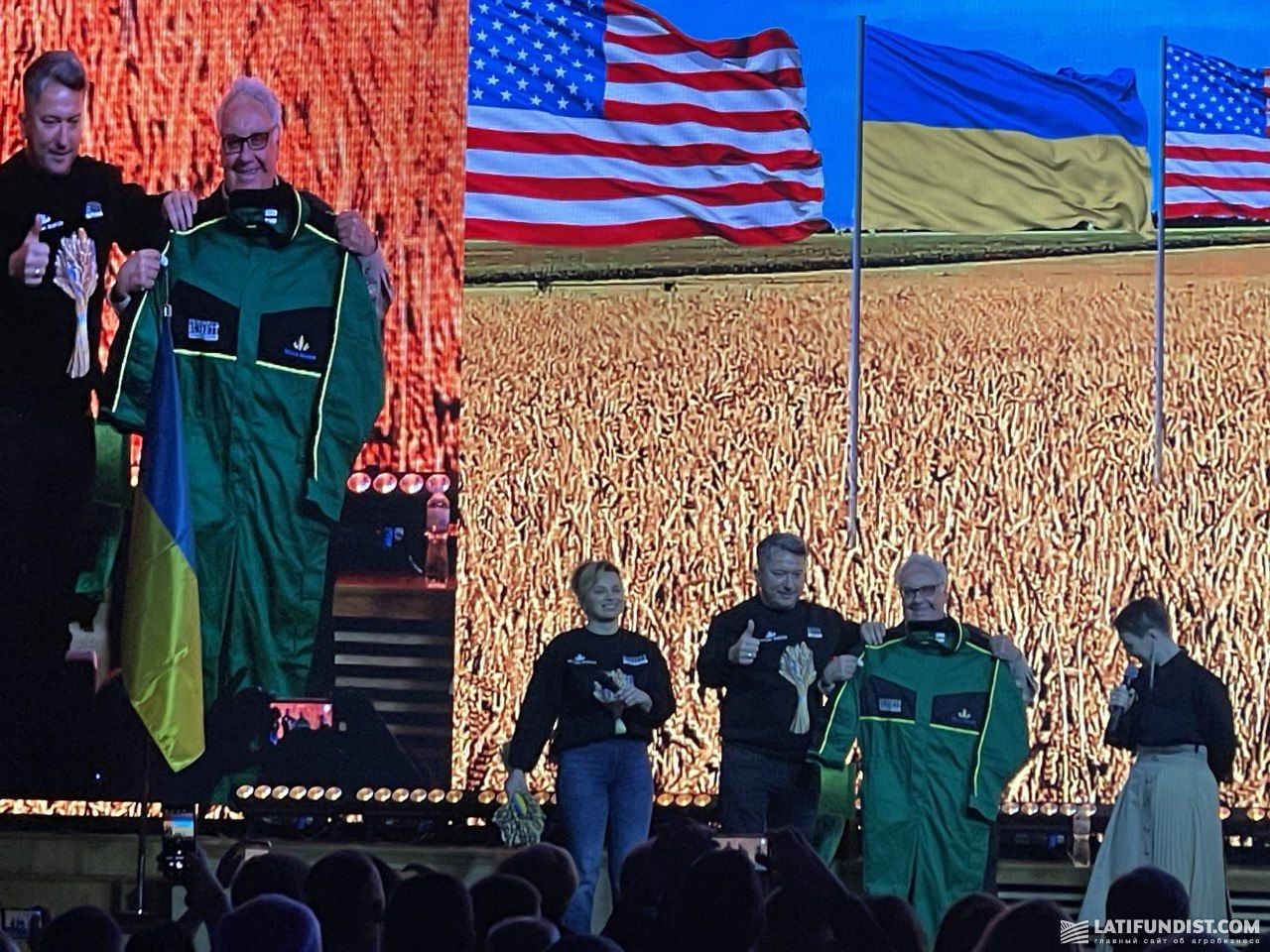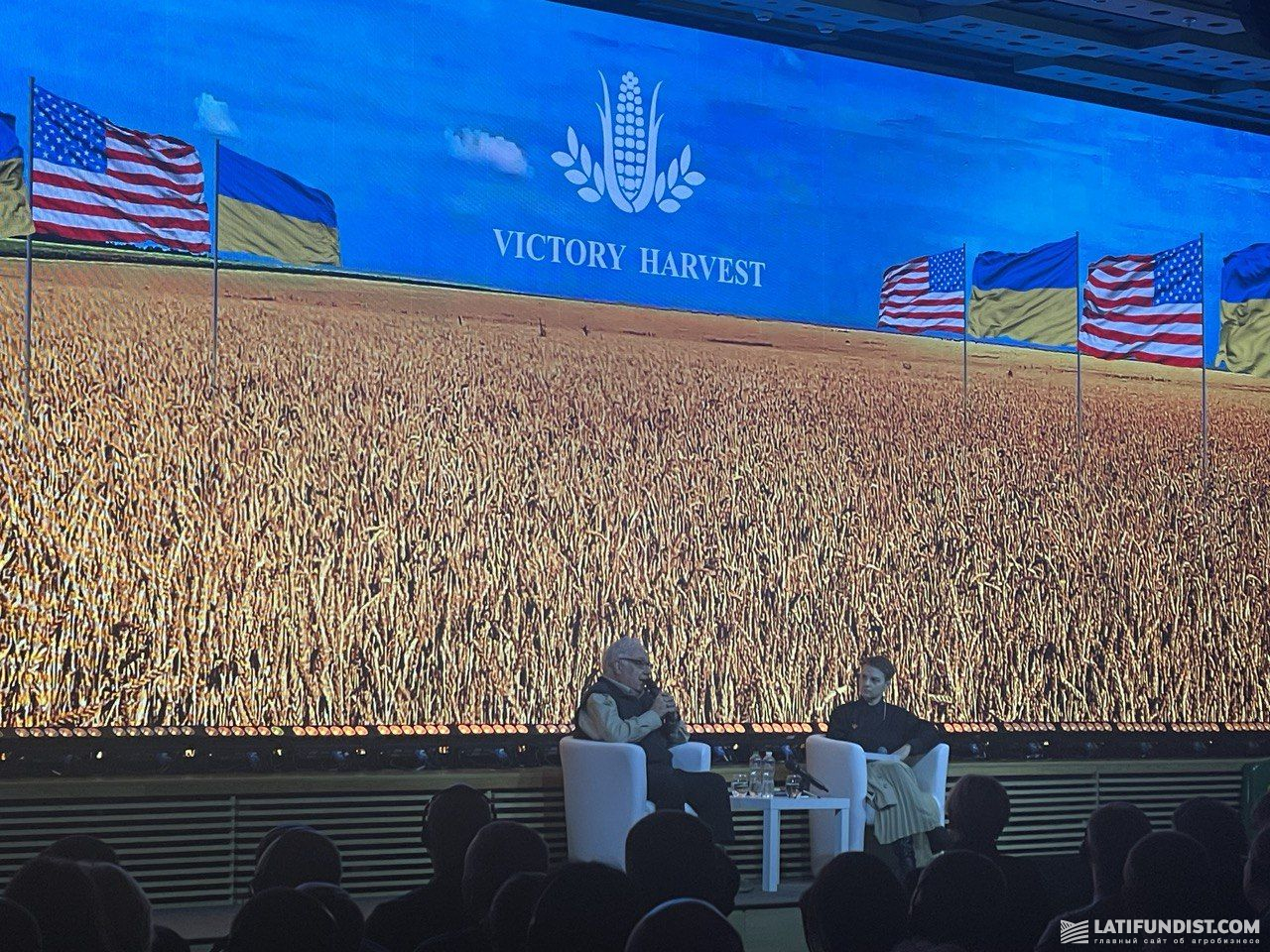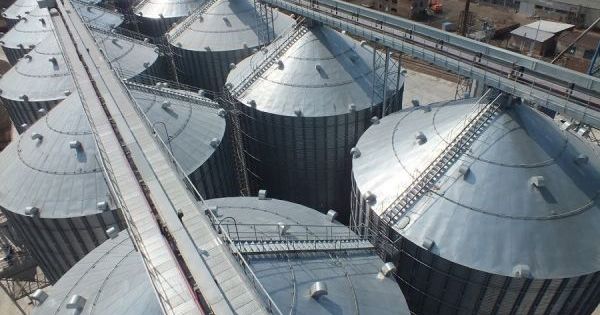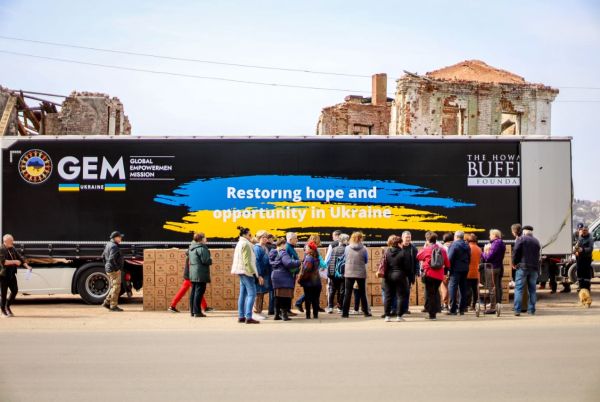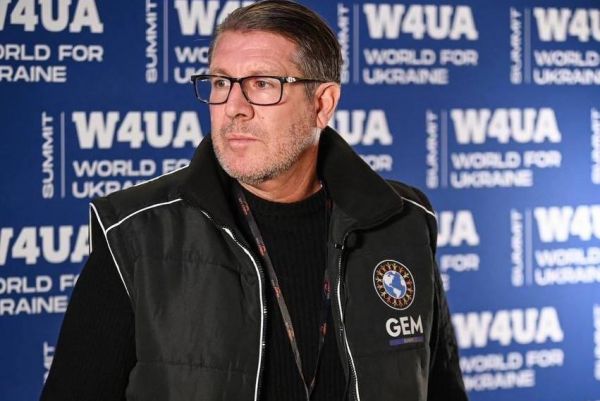Howard G. Buffett: It Takes Time to Get American Farmers to Help Their Ukrainian Colleagues, as Many Never Traveled Outside the US
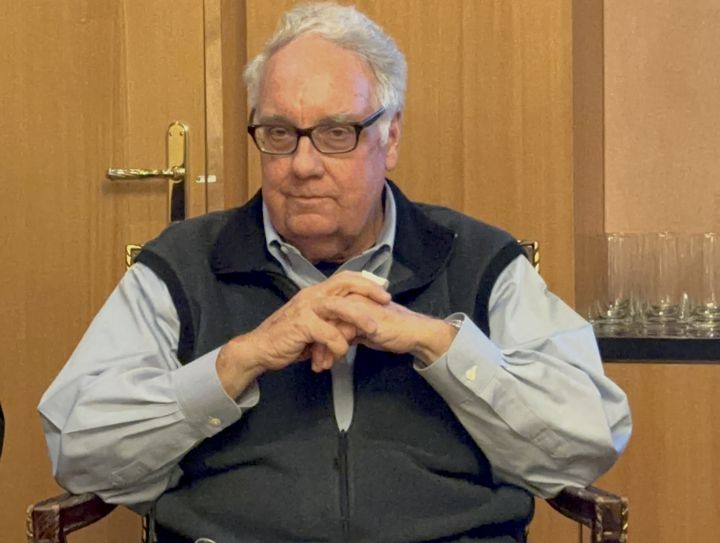
Photo by: Latifundist.com
American philanthropist, head of The Howard G. Buffett Foundation and one of the largest private donors to Ukraine, Howard Buffett recently had a meeting with Ukrainian farmers as part of the FARMERHOOD project. The project offers foreign farmers and donors targeted financial assistance to growers working in the de-occupied territories or within 50 kilometres of the war zone, engaged in crop or vegetable production, and with up to 500 hectares of cultivated land.
In contrast to state or international institutions with fixed budgets, the FARMERHOOD project does not have an approved fund for distribution. Donations are raised worldwide.
Howard Buffett is helping the project with a promotional campaign in the United States. Thus, with his contribution, the stories of Ukrainian farmers from the de-occupied and close to the war zones appeared on the pages of the renowned US magazine Farm Journal Magazine. Together with USAID and LatifundistMedia, these stories were seen by viewers of the agricultural TV channel RFD-TV.
The project gets no direct financial support from Mr Buffett. Kateryna Konashchuk, the founder of FARMERHOOD, jokes that whenever the name of his foundation appears in a project, people are less likely to donate. Why? Because they believe that their US$ 100 won't change anything "if there are Buffett's billions."
In a discussion with Kateryna and the project partners, Howard Buffett spoke about his experience as a farmer, the mentality of US farmers, and why they are reluctant to help their Ukrainian colleagues. He also mentioned investments in dry ports on the western borders and why Ukraine is bound to win.
What brought you to farming?
Howard Buffett: Once I needed a trawl to move a bulldozer I had bought. So I turned to a person who would build it. I paid for the work. Six months passed, and no trawl was made. And then this person told me: "I spent all the money, but I still don't have the trawl, but I can give you a tractor instead." I had no other choice but to take the tractor. I started to use it, but it soon broke down because it was very old.
Since I knew nothing about tractor repair, I asked my neighbour, a farmer, to help me. Fortunately, he turned out to be a handyman and knew how to fix it cheaply. And he even refused to take money for it. After a while, he needed help. Of course, I helped him. I was put in a very old tractor without a cab and sent to disk the field. I sat down, started the tractor, and black smoke came out of the pipe. After working a shift and breathing in that smoke, I thought to myself that this was not a job I really liked.
The next time he called me to plough the field, but this time the tractor had a cab. The tractor had lights, but they were not very bright. And it was already getting dark. In the region where this farmer worked, there are artificially made cascading terraces for water drainage. So I drove to the top of one of these terraces. Then a truck comes rushing at me, flashing its lights for me to stop. A man gets out and says: "Howard, what are you doing? I just sowed my field here."
That was the first step in my farming career. I started out driving tractors, and then I ended up where I am today.
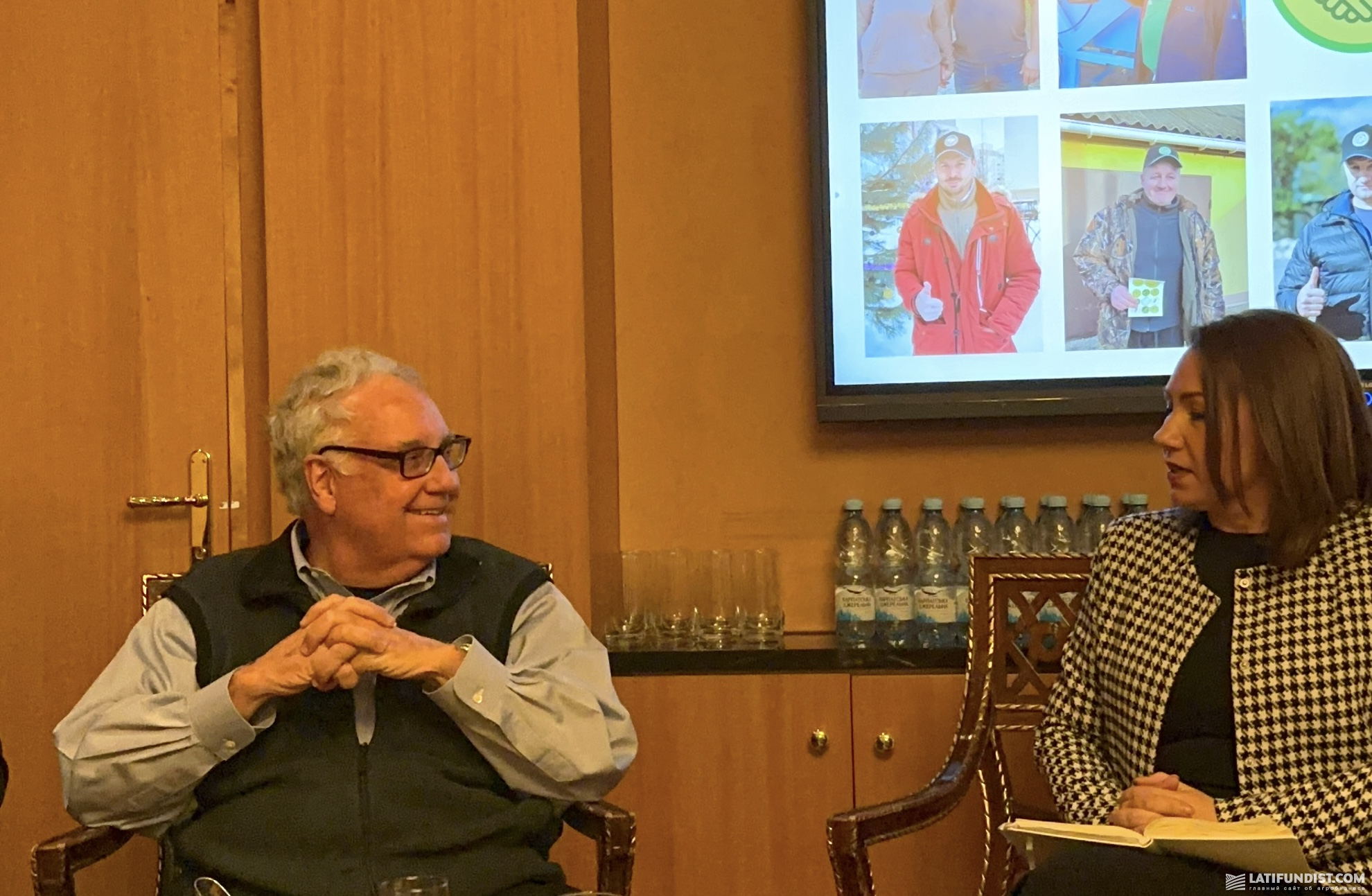
At present, what does your business in the US consist of?
Howard Buffett: I run a 400-acre farm in Nebraska (apx. 161 hectares - ed.) and a 1,600-acre farm in Illinois (apx. 647 hectares - ed.). In Nebraska, pivot irrigation systems are installed on the fields. In Illinois, the land is very similar to Ukrainian black soil. But we have a little more rainfall there than you do.
You have been a fan of No-till for quite some time.
Howard Buffett: I have been doing No-till for more than 30 years. No offence but I believe that those farmers ploughing the land are wasting their money. Ploughing obviously does not bring any benefit to the soil.
How are US farmers different from Ukrainian producers, in your opinion?
Howard Buffett: I would not say that there is much difference between farmers. It is in the way the farmland is arranged. If you get on a plane and fly over the US, you will see that the fields are almost perfectly shaped squares. Then fly over the territory of Ukraine. What will you see? The fields are all shaped in a variety of ways — endless space for creativity.
In Ukraine, there are many farmers with a large land bank, which is not the case in the US. Although, in my opinion, this is not an advantage for you. I still advocate that people should work on the land they can physically manage. There are always limits, because at some point you grow to a level where you simply cannot physically handle it. Ask parents with 4 and 15 children: do both of them have time to take care of their children equally? That is why we focus in Ukraine on helping small farms.
Why is farmer cooperation not as widespread in Ukraine as it is in the US?
Howard Buffett: You see, the US and Ukraine have completely different backgrounds. I visited Ukraine when it was still part of the USSR. You inherited a system of collective farming — collective farms. And when your farmers had the opportunity to become independent, they fled from that collective farm as far as possible.
In the US, on the contrary, each farmer started his business on his own. Over time, they realised that if they did something together, they could get a better price for their products under the right conditions. After all, what is a co-operative? It is actually a business that farmers invest in to make a profit.
What opportunities does it offer them? The ability to buy inputs at a lower cost and sell grain at a higher price. By investing in the cooperative, they expect to increase their profits together. At the same time, each of them stays with their own farm, each makes their own production plans, has their own machinery, etc. In other words, the cooperative does not turn into a collective farm.
But isn't it also something related to the mindset of US farmers?
Howard Buffett: There's one incident I'll never forget. In the first year of my work on the farm, I went to the field to harvest grain. At that time, 15 harvesters were already working in the neighbouring field, and about 20 trucks were waiting nearby to take it away. My first thought was: what is going on? It was a neighbour's farm that a wife had inherited after her husband's death. And that day, all the neighbours gathered to help her harvest the crops with their equipment. Unfortunately, I didn't know this because I didn't grow up on a farm.
When my father and I started farming in Nebraska, we needed to buy insurance for the crops we planned to grow. I went to an insurance company. It was also owned by a family of farmers. I walk into the office and hear their client say: "Can you believe that Warren Buffett has bought a farm in our area? Now he will buy all our land. We will lose our business." I listened to them, waited for this client to leave, came in and said: "Good afternoon. I'm Howard Buffett." Oops.

And how did this story end?
Howard Buffett: We bought 400 acres. None of the neighbouring farmers were affected. Back then, I still used ploughing because I didn't know what No-till was. I used to work the land with a cultivator, and it would break down. I had to stop work and change spare parts. One day, my two neighbours saw me fiddling with that cultivator, stopped and helped me fix it.
If your neighbour needs help, you stop and help. This is the mindset of US farmers.
And I do hope that your FARMERHOOD project will bring the real situation in Ukraine to farmers in the US. Although I find it hard to say but I understand that this assistance will not be as big as I would like. Ukraine is geographically far away. Many farmers have never even left the US. Therefore, it may take some time to awaken their consciousness and explain why they should help their colleagues in Ukraine. But we are not giving up and continue to work on it.
We appreciate what you are doing for Ukraine. To support displaced children, the military and their families, and people living close to the frontline. At the same time, you still find time to do more to help agribusiness. And you do it personally: you are always in touch and your response to requests is instantaneous. But many people ask why you do this outside of The Howard G. Buffett Foundation.
Howard Buffett: My foundation is now active in 89 countries. Over the past few years, we have provided US$ 3.5 billion in aid. Indeed, this is a huge amount, but we do not expect anything in return.
Although the situation I had in Congo changed my worldview a little bit. We had a meeting with the president of the country, where we told him that we had done this and that for his country. And he said: "Well, you didn't do it, other people did it". But I know for sure that all that work was actually paid for by my foundation. So after this incident, we started telling people about our work and what exactly we fund, what charitable projects we implement in their country.
However, when I came to Ukraine, I no longer wanted to put my name everywhere. Our task is not to tell people what we have done but to help.
For example, no one knows, but we have rebuilt the Odesa-Reni bridge. About six months ago, the US ambassador asked me if we could build modular bridges in Kharkiv region. Why not? We bought enough materials to build 11 bridges in the region. At that time, we saw the news that the bridge connecting Odesa and Reni was collapsing along with the truck that was on it. I immediately said that we were going to push back the Kharkiv plans a little bit and put all our efforts into rebuilding that bridge.
Now I am proud that we rebuilt it. It is long and of great importance to the region. But I don't need people to know that we had a hand in it.
Have you considered starting a business in Ukraine?
Howard Buffett: We do not consider everything we do in Ukraine as charity. It is an investment. For example, I built the Odesa-Reni bridge and I see it not as humanitarian aid but as an investment. The equipment for farmers that we provide under the Victory Harvest programme is also an investment. But if we are talking about a programme to help people in the frontline areas with food, this is a charity project.
I make a clear distinction for myself between charity and investment.
We have already invested more than US$ 500 million in Ukraine. Perhaps next year we will invest another US$ 300 million, or even more. I spent all this money through my foundation. However, no matter how I do it, someone will say: "He has a vested interest here". No offence, but everything in Ukraine is under firm control.
A year ago, you did not believe in the opening of the grain corridor and planned to build transshipment facilities on the western borders. Have you succeeded with those plans?
Howard Buffett: Together with ADM, we have invested in a dry port on the border with Hungary. It will be a 30,000-ton grain elevator. Grain will be transshipped from the railway to containers and go where ADM will send it.
We will complete this project first, and then possibly 5-10 more similar projects will appear. We will rent them out. In this way, the money will stay in Ukraine (it will go to the accounts of a foundation officially registered here) and I will spend it on charity, while grain growers will be able to develop their business.
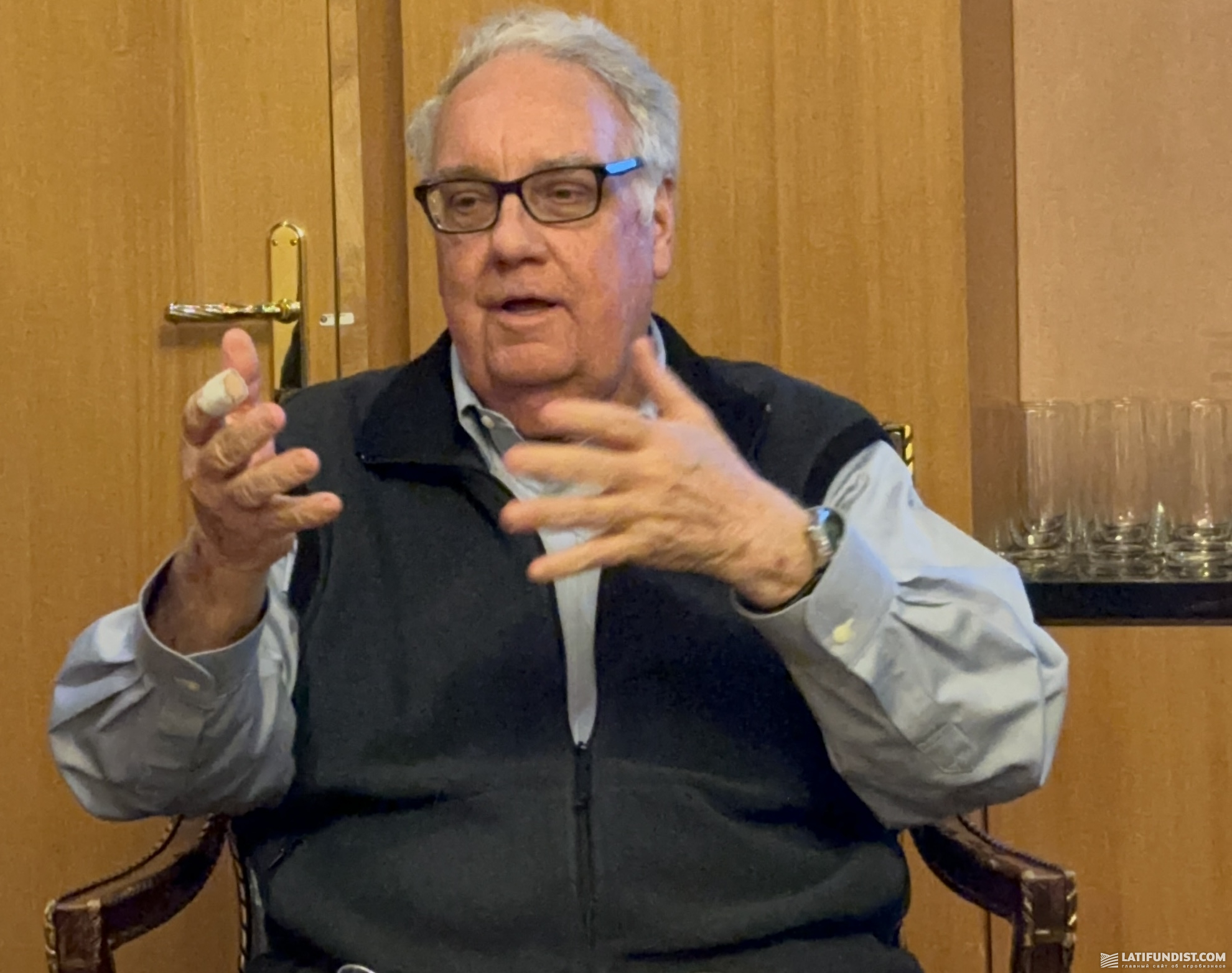
What keeps you motivated and inspired?
Howard Buffett: People ask me this a lot, and I don't know what to say. I guess it's just in my DNA. I would say that those people who have never worked on a farm have wasted their lives. Of course, I don't work on a farm every day now, but I used to. A farmer has much to do during the day, but even when he comes home in the evening, he still feels like he oversees the work on the farm.
When I was young, I got a job with a farmer in Central Nebraska. Of course, the first question was: "Do you have a tractor with a cab or without?" (laughs – ed.). I worked for him all summer. He asked me what I liked most about the job. I said it was the machinery. And he replied: "The day will come when you will change your point of view. You will start to like what you grow from the soil. You will take care of the land. You will worry if your son or daughter will want to continue the business. And one day, the farm will become a part of your life, not just a business."
In fact, many US farmers consider it a part of their lives, and don't consider farming as a business. And there are disadvantages to this. Why? Because they believe that no one will ever take their farm away from them. Yes, in America, no one can force you off your farm. But through our foundations, our magazine and television, we tell farmers what it's like when you can't go to your field that you've been working on all your life because someone else is already working there. Or your grain has been burnt in the field because of a missile attack, or it has been taken from the elevator by someone else. No American farmer can imagine this even in a bad dream.
So my mission is to explain to them all the actual things that are happening to farmers in Ukraine. Perhaps this information will encourage them to help their Ukrainian colleagues.
What makes you confident Ukraine will win?
Howard Buffett: It will be not easy to convince US farmers to support someone else in 2024. Presidential elections. They trigger a lot of disputes among people. One of our candidates says that the US has nothing to do in NATO and that putin is a great leader. But if ordinary Americans don't understand the implications of these statements for the country, for the world and for Ukraine, then we probably have a serious problem.
The world still cannot fully understand that Ukraine is fighting one of the most powerful armies in the world. And if we do not provide all the assistance that Ukraine needs to defeat putin now, then in five years' time, someone will definitely use nuclear weapons.
putin will take as much as he is allowed to. He will keep taking as long as he is allowed to do so. As the well-known historian Timothy Snyder says, history does not repeat itself, but creates templates for everyone to use. Today we see the templates of the Second World War being used. There are a lot of similarities. Europe may understand the situation better because it is geographically close to russia. Unfortunately, the US does not fully realise that if it does not support Ukraine, it will actually let the world lose the Victory.
I firmly believe that even with a huge delay, we will have our eyes opened and we will still be able to deliver everything Ukraine needs to win.
Kostiantyn Tkachenko, Natalia Rodak, Latifundist.com

